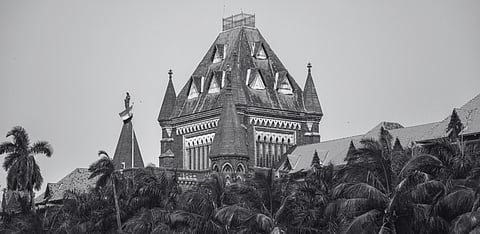

The Rules, among other things, provide for establishing a fact-checking unit by the government for identifying 'fake', 'false' or 'misleading' content with respect to 'any business' of the Union government.
—
ON Thursday, the Union government assured the Bombay High Court that it would not notify the 'fact check unit' under the Information Technology (Intermediary Guidelines and Digital Media Ethics Code) Amendment Rules, 2023 (IT Amendment Rules) till July 5.
An undertaking to this effect was given by the Additional Solicitor General of India Anil Singh before a division Bench comprising Justices Gautam S. Patel and Dr Neela Gokhale. The Bench was hearing a petition filed by stand-up comedian Kunal Kamra challenging the IT Amendment Rules.
On April 6, the Union Ministry of Electronics and Information Technology notified the IT Amendment Rules which among other things provide for establishing a fact-checking unit by the government for identifying 'fake', 'false' or 'misleading' content with respect to 'any business' of the Union government.
Senior advocate Darius Khambata and advocate Arti Raghavan, appearing for Kamra, opposed the adjournment sought by the Union government. The Bench, however, did not find any reason to immediately hear the petition praying for stay or suspension of the Rules in view of the government's undertaking.
The Bench will now hear the matter on June 8.
On March 11, the Bench directed the Union government to file a reply and disclose the factual background that necessitated the Amendment Rules. It has asked the government to submit its response on why the Amendment Rules should not be stayed by the court.
It claims that the amendment is ultra vires Section 79 (exemption from liability of intermediary in certain cases) of the Information Technology Act, 2000 (IT Act), as it deprives intermediaries of the safe harbour immunity under Section 79 on grounds beyond Article 19(2) of the Constitution.
Intermediaries are online services that offer a neutral platform through which persons may interact with each other over the internet.
Essentially, the amendment requires social media intermediaries to censor or otherwise modify content relating to the Union government, if the government-mandated fact-checking body directs them to do so.
The petition states that the IT Amendment Rules are manifestly arbitrary as it entails the Union government "acting as a judge and prosecutor in its own cause", violating one of the fundamental principles of natural justice.
The petition asserts that there is potential that the new Rules may create a situation where materials critical of the government would be particularly vulnerable to being flagged as "misleading" by the government-sanctioned fact-check unit. Moreover, attributing the Union government the privilege of being the only watchdog of fake, false, or misleading information goes against the rule of law, as per the petition.
The plea contends that the Rules do not afford the user an opportunity to be heard before flagging content as "fake, false, or misleading". No safeguard has been adopted against the exercise of purely subjective discretion by the executive.
In addition, the petition argues that new Rules are vague and constitute an unreasonable restriction on freedom of speech and expression under Article 19(1)(a) of the Constitution by making the "State the sole arbiter of truth or falsity of speech".
The government, in its affidavit, opposed the petition, claiming that false and misleading information could impact India's electoral democracy and weaken the trust of citizens in democratic institutions.
During the hearing of the petition, the Bench prima facie was of the view that unlike what was stated in the affidavit that the Amendment Rules would not be applicable to fair criticism, satire or parody, there was nothing in them to offer such protection.